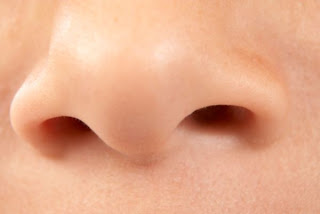A few weeks ago, Nicholas Humphrey, the renowned British psychologist, emailed me with some of his thoughts on placebos and self healing.
Humphrey is one of the few researchers who dare to go beyond the IF and the HOW questions of placebo healing and delve into the WHY. Specifically, if humans are endowed with varied and powerful self-healing resources, why are these effects so conditional and reliable for some while nonexistent for others, and why do we seem to need "permission" from some third party (be it a pill, a doctor, or a sign from the heavens) to trigger our endogenous healing potential?
Over the years, Humphrey has put together a theory about all this -- an evolutionary tale, a story of ancient, cognitive reflexes, protective and essential in our cave days but overly-cautious in the modern world, coaxed with a bit of trickery. Along with the neurologist and evolutionary psychologist John Skoyles, Humphrey wrote a concise version of this theory in the September 2012 issue of
Current Biology titled,
"The Evolutionary Psychology of Healing: A Human Success Story."
It's a fascinating theory that Humphrey also describes in a
podcast interview (his bit starts at 15:14). Before I offer my layman's summary, it's worth noting that Humphrey's family tree includes both the economist John Maynard Keynes and, most pertinent for this post, the physiologist A.V. Hill. It was Hill who first postulated the idea that there must be some kind of protective mechanism a "governor" either incorporated in the heart muscle or in the brain that could regulating fatigue in an exercising body to prevent us from exerting ourselves to death. The idea was largely ignored until the 1990s when the South African exercise physiologist Tim Noakes picked up and expanded on the concept, and began giving this "central governor" more empirical support. Accordingly, the central governor protects us by inducing fatigue, slowing us down, conserving our resources, based on an ongoing, forward-looking analysis of how much gas we have left in the tank and how much farther it is to the finish line.
Humphrey first points out that the benefits of our self-healing mechanisms (our immune systems, our natural wound healing, even our protective pain and our toxin-killing fevers) also have costs in terms of consuming energy and nutrients, and the opportunity costs of a day in bed. He proposes that in our cave days, these costs could loom very large indeed, and that a self-healing "governor" would take them into account and possibly hold the self-healing mechanisms back until the coast was clear, the days were warmer, and resources such as food were easier to come by.
The self-healing governor, though hardwired, could learn things, Humphrey says. It could learn about medicine, for instance, and become more generous and optimistic with healing resources under its spell, both the "directly curative" treatments and the "mumbo-jumbo" of rituals and snake oil. Nevertheless, the governor remained essentially conservative, stuck in evolutionary time, unaware that (at least in the developed world) we lived in a context of abundant resources where day-to-day survival was much less of an iffy proposition.
Enter the placebo -- a bit of a ruse that might have been catastrophic in our hardscrabble history but today is what Humphreys and Skoyles dub, "a dose of contrived optimism" that fits the reality of our world and can, "restore confidence in the wisdom of self-cure."






